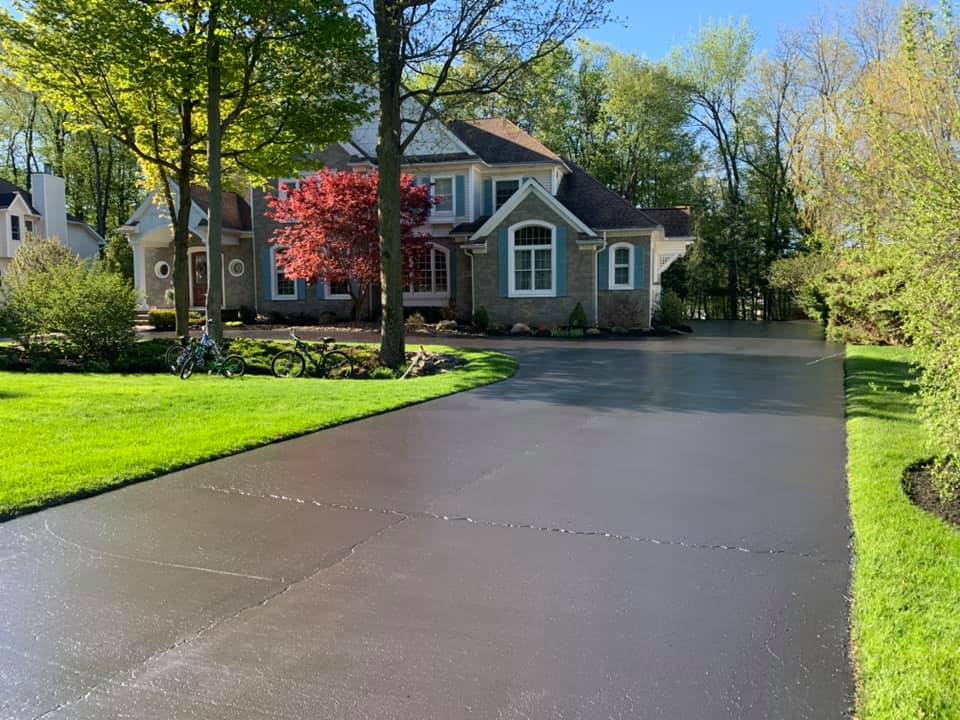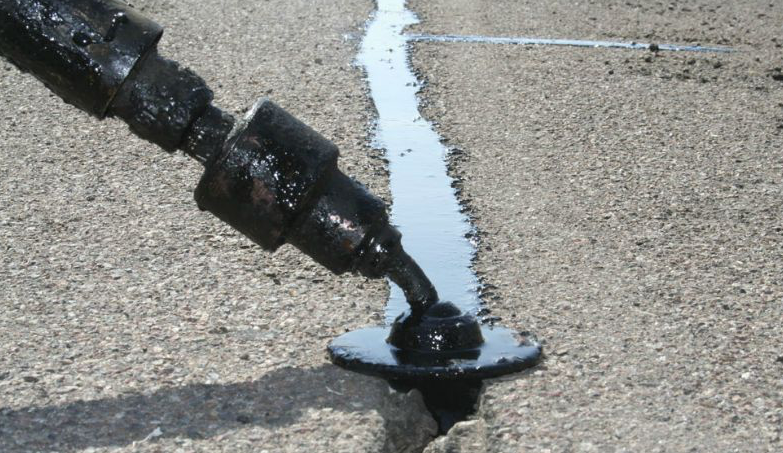Maximize Investment Returns: Angled Car Park Excellence with Asphalt Sealing
Maximize Investment Returns: Angled Car Park Excellence with Asphalt Sealing
Blog Article
Hot Mix Asphalt: A Sustainable Service for Sidewalk
Hot Mix Asphalt (HMA) has actually emerged as a leading lasting choice for sidewalk remedies, offering a myriad of environmental benefits and innovative modern technologies. As the need for eco-friendly building practices expands, discovering the subtleties of HMA's sustainability can give important understandings into the future of sidewalk remedies.
Environmental Advantages of Warm Mix Asphalt

Additionally, Hot Mix Asphalt helps to alleviate metropolitan heat island effects. Its dark shade takes in sunshine, reducing the amount of heat showed back right into the ambience contrasted to lighter-colored pavements. This can decrease ambient temperatures in city locations, decreasing the need for air conditioning and ultimately minimizing power usage.
In enhancement, Warm Mix Asphalt contributes to boosted stormwater monitoring. Its permeable nature allows water to infiltrate the sidewalk and reenergize groundwater products, minimizing drainage and the risk of flooding. These environmental advantages make Hot Mix Asphalt a sustainable selection for leading freeways and roadways.
Energy Efficiency in HMA Production
Is power effectiveness an important variable in the production of Warm Mix Asphalt (HMA)? Power plays a considerable function in the production of HMA, affecting both price and ecological sustainability. One vital aspect of energy efficiency in HMA production is the use of cozy mix asphalt (WMA) modern technologies.
Moreover, innovations in plant modern technologies have led to more energy-efficient HMA manufacturing processes. By optimizing power usage in HMA manufacturing, the sector can decrease its carbon impact while keeping high-grade pavement materials.
Recyclability of Warm Mix Asphalt
The recyclability of Warm Mix Asphalt (HMA) is an essential element of its sustainability and long-term environmental impact. HMA is among the most recycled materials in the United States, with over 100 million lots of recovered asphalt sidewalk (RAP) being reused yearly in brand-new sidewalk building. Reusing HMA offers numerous ecological benefits, such as reducing the need for virgin materials, lowering energy usage throughout manufacturing, and decreasing the amount of waste sent out to land fills.
The process of reusing HMA involves grating the existing sidewalk, crushing it into smaller sized pieces, and mixing it with new aggregate and asphalt binder to produce a recycled mix. On the whole, the recyclability of HMA plays a substantial role in promoting lasting techniques within the sidewalk industry.

Long-Term Performance of HMA
Asphalt sidewalks show toughness and durability over an extended duration, showing the long-term performance of Warm Mix Asphalt (HMA) Furthermore, advancements in HMA technology, such as the use of polymer-modified binders and cozy mix asphalt, have further improved the resilience and longevity of HMA pavements. By focusing on high quality construction and maintenance practices, HMA continues to prove itself as a sustainable and economical remedy for long-lasting sidewalk facilities.

HMA: Sturdiness and Sustainability
Showing both sturdiness and sustainability, Hot Mix Asphalt (HMA) has actually come to be a foundation in the construction of long-lasting sidewalk infrastructures - angled parking. HMA's durability comes from its ability to endure hefty loads, severe weather, and high web traffic quantities, making it a reputable selection for streets, highways, and airport terminal paths. The make-up of HMA, which normally consists of aggregates, binder, and filler, plays a vital role in boosting its longevity and resistance to tear and wear
Furthermore, HMA's sustainability lies in its recyclability and energy-efficient manufacturing procedure. The capability to recycle reclaimed asphalt sidewalk (RAP) in brand-new HMA combinations decreases the demand for virgin materials and decreases the environmental impact of sidewalk building and construction and upkeep. In addition, the energy efficiency of creating HMA hinges on its lower mixing temperatures contrasted to other pavement materials, resulting in minimized energy usage and greenhouse gas discharges.
Verdict
In final thought, warm mix asphalt (HMA) supplies a lasting solution for pavement basics with its ecologically pleasant attributes. HMA's recyclability, Our site energy effectiveness in production, and long-lasting durability make it a green selection for road building and construction.
HMA is one of the most recycled materials in the United States, with over 100 million bunches of redeemed asphalt pavement (RAP) being reused yearly in brand-new pavement building and construction.The process of recycling HMA involves milling the existing pavement, squashing it into smaller items, and mixing it with new accumulation and asphalt binder to produce a recycled mix.Asphalt pavements show resilience and strength over an extended duration, reflecting the long-lasting performance of Warm Mix Asphalt (HMA) In addition, advancements in HMA technology, such as here are the findings the use of polymer-modified binders and warm mix asphalt, have even more enhanced the sturdiness and long life of HMA pavements. The ability to reuse reclaimed asphalt pavement (RAP) in new HMA mixtures decreases the demand for virgin products and decreases the environmental influence of pavement construction and upkeep.
Report this page